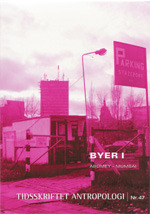HONOLULU
DOI:
https://doi.org/10.7146/ta.v0i47.107112Resumé
In the grand narrative of Honolulu as the
gateway to the Land of Aloha, Honolulu
metaphorically negotiates a position that
mediates the contrasts between a typical
socio-economic, urban reality and touristic
myths of pastoral excoticism. Drawing on
the critical works of postcolonial scholar
Edward Said in conjunction with theories
on semiotics and tourism, the article posits
that two main factors contribute to reinforce
and repeat the (neo)-colonial paradigm’s
persistence in the grand narrative
on Hawaii – namely aloha and nostalgia.
Aloha functions conceptually as a unifying,
pacifying force amongst the local
population, while it defines the tourist
gaze on Hawaii as a welcoming and politically
uncomplicated holiday destination.
Nostalgia, on the other hand, is the
ideological interpretation of the past based
on utopian desires in the present. Conjoined,
aloha and nostalgia favor the
tourist gaze and continue the hegemonic
processes that colonize the minds of
tourists and locals alike.
Downloads
Publiceret
Citation/Eksport
Nummer
Sektion
Licens
Ophavsretten til artiklerne i Tidsskriftet Antropologi tilfalder forfatteren.
Artikler publiceret i Tidsskriftet Antropologi må citeres, downloades og videresendes for ikke-kommerciel brug, under forudsætning af normal akademisk reference til forfatter(e) samt tidsskrift, årgang, nummer og sider. Artiklerne må kun genudgives med eksplicit tilladelse fra forfatter(e) og tidsskriftet.


